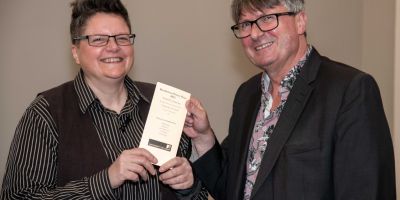Dr Pippa Marland awarded Leverhulme Early Career Fellowship
Congratulations to Dr Pippa Marland of the School of English on being awarded a Leverhulme Early Career Fellowship for her research into farming in British nature writing.
Congratulations to Dr Pippa Marland of the School of English on being awarded a Leverhulme Early Career Fellowship for her research into farming in British nature writing.
Dr Marland will be using her fellowship to conduct a research project entitled 'The Pen and the Plough: Modern British Nature Writing and the Farm'. It will carry out the first comprehensive assessment of the representation of farming in modern British nature writing, investigating the prevalence of literary tropes of nature (e.g. the pastoral and the georgic) in such representation and mapping the historical and emerging contexts that have influenced attitudes towards commercial agriculture.
The project will last 36 months beginning 29 March 2019 - the date upon which the UK will leave the EU's Common Agricultural Policy - and aims to make a critical and timely intervention into the cultural discourse surrounding farming. It will culminate in a monograph and series of public engagement activities.
The Leverhulme Trust's prestigious Early Career Fellowships are designed to support early career academic researchers by allowing them to complete a significant piece of publishable research work. Only around 100 will be awarded across the whole of the UK in 2018, making this an especially impressive achievement. Dr Marland is also working on the AHRC-funded Land Lines project, which is examining Britain's love for nature writing.
Speaking of her fantastic achievement, Dr Marland said:
"I'm honoured to receive this Fellowship and excited about the research it's going to enable me to carry out. Over 70% of the UK's land area is farmed and the future of the nation's biodiversity is closely tied to the kind of agricultural practices we adopt and support in the coming years.
Now seems an important moment to look closely at the representation of farming in a genre that has had, and continues to have, such a significant impact on cultural perceptions of the rural. The project’s scope will offer an important genealogy for contemporary debates around farming and environment that can only be fully understood through tracing the history of their emergence."




